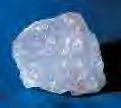What effect does salt have on cells?
John from Florida
Add your voice! Click below to answer. ThriftyFun is powered by your wisdom!
If unprotected cells are exposed to salt, or a salt water solution where the concentration of the salt is greater than the concentration in the cellular fluid; the water in the cells will be drawn out, "shrivelling" the cell.
Similarly, if unprotected cells are placed in pure (unsalted) water, water will be absorbed into the cell, causing it to swell. This accounts for the "pruney" wrinkles we get on our fingers and toes if we are in the water a long time. (The cells in our skin absorb extra water and expand, so they won't "lay flat".)
Luckily, because we have skin, our cells are not as vulnerable in our bodies as unprotected cells in a petri dish are. However, exposure to salt externally can cause dry skin, etc., and too much salt taken internally can cause a variety of problems.
I think the first post is excellent. I just wanted to remind you that if consumed, salt causes cells of the body to retain water.
Depends on the salt, and, everything and all else consumed - I use pink salt - the minerals are in it - any kind of pure white salt is refined and the good things are removed -
How Salt Effects the Body
Salt which is also known as sodium is in your blood naturally. When additional salt is consumed, it absorbs into your blood stream. When the salt gets absorbed into your blood it makes your blood saltier than it should be. When the salt runs through your body and comes into contact with your cells, the salt in your blood makes the fluid on the outer part of your body's cells saltier then the cells that are meant to be. The cells notice this change immediately. As a reaction the cells pull water out of the cells for protection. The cells in turn try to hold on to the water and then tell the brain of the change in quality of the water around them due to the additional salt that is added. When the brain notices that there is too much salt, the brain needs to sponge out the extra salt to prevent any harm. The way your brain does this is by obtaining water from having you feel thirsty.
The constant balance of salt and water in the blood manages our blood pressure. Consuming salt isn't necessarily a bad thing; it just needs to be correctly proportioned throughout your diet. www.associatedcontent.com/
How does a high consentration of salt affect cells?
You are looking at a hypertonic solution, where there is a higher amount of salt outside the cell than there is inside the cell. The water inside the cell will diffuse out, which causes the cell to shrink. This is why your fingers shrivel in the bathtub.
The opposite will happen in a hypotonic solution. The cell has more salt than the outside, and the water will diffuse into the cell, causing it to swell. wiki.answers.com/

Please tell us this is not a homework question.
This is a variation of the old "which came first - the chicken or the egg" question.
The reason the kidneys retain salt is because you are dehydrated, not because have too much water in the body. There has to be something holding this "extra" water in, and if it isn't salt, then what else could it be?
Water is the most important substance the body needs to live - every cell and every function in the body depends on it. This is why you need to drink 8 - 10 glasses of water per day, so it can be available for these functions 24/7.
The second most important substance needed in the body is salt because salt has many other vital functions besides just holding water in the body.
You lose about 1 quart of water per day through respiration and another quart of water through kidney function. Most people either don't replace this water or try to replace it with soft drinks and other beverages that act like diuretics to remove more water than they contain. Thus, 75% of the population is dehydrated and doesn't realize it.
The reason the kidneys hold onto extra salt is because it retains water, and this is what the body is trying to do when you get dehydrated. When you take diuretics to remove the excess salt and water, the kidneys go into a hyper mode to replace the lost water and salt, and this is why diuretics aren't prescribed for long - the cycle never ends. Eventually, other drugs are prescribed to manipulate the arteries - holding them open, relaxing the muscles, etc.
Blood is naturally made up of 94% water and salt, and the "too much salt/too much water" theory on high blood pressure is wrong. If the arteries are getting too much water, why are blood thinners often prescribed? Blood thinners would be used on thickened blood, not watery blood as there would be if the arteries contained too much water.
The reason the blood pressure rises is because dehydration removes 8% of the water from the blood, which causes the heart to work harder to pump thickened blood through the narrowed cardiovascular system.
Drinking more water and increasing (not decreasing) the salt intake slightly will lower the blood pressure without the need for medications.
Add your voice! Click below to answer. ThriftyFun is powered by your wisdom!